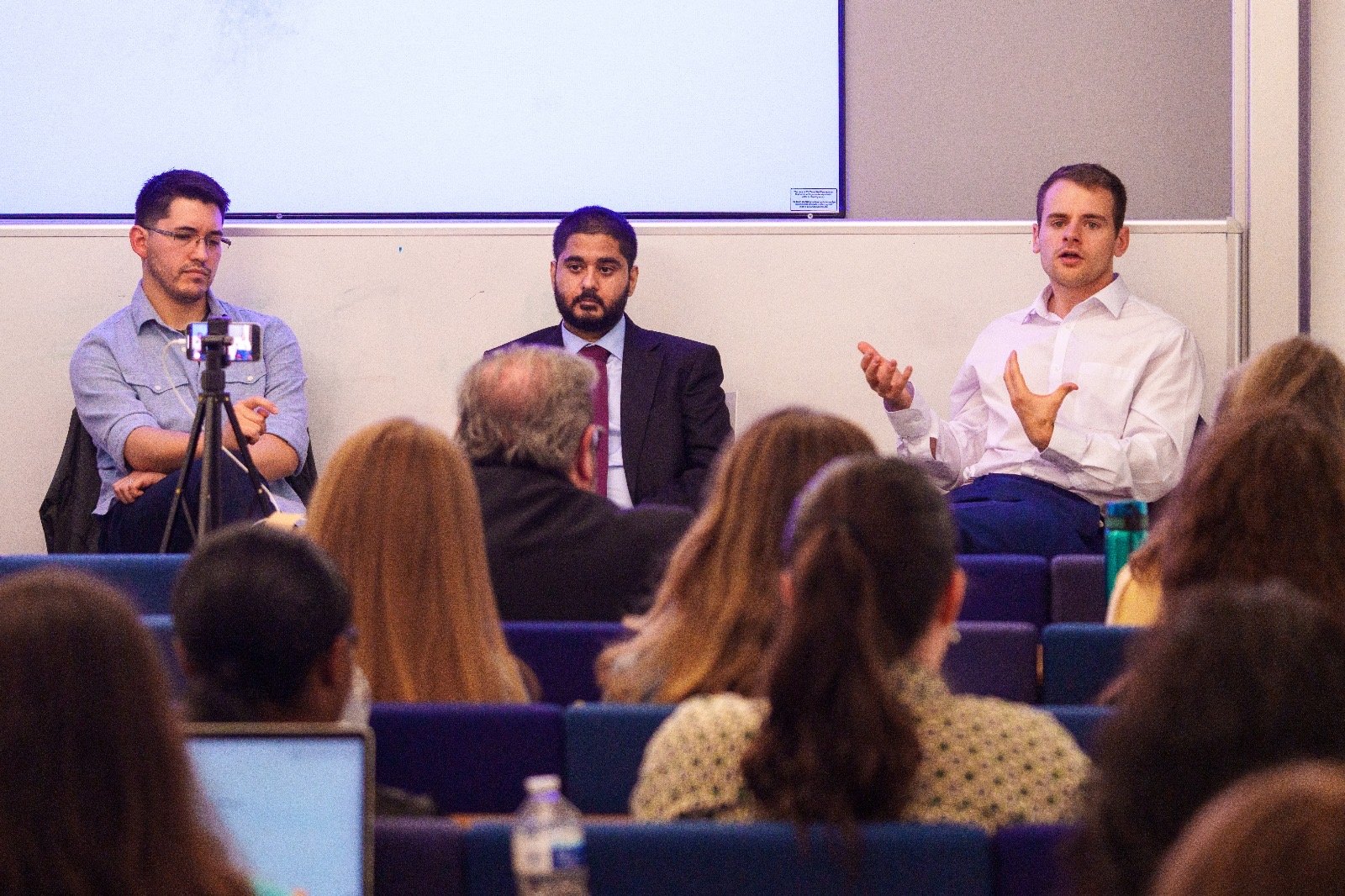
Project Unity
So what is Project Unity?
Whilst our first project, Resilience, is dedicated to amplifying the voices of survivors of terrorism., Unity focuses on raising awareness of the impacts of terrorism through the voices of young survivors, former extremists and practitioners.
Project Unity delivers public events across UK universities, involving a survivor of terrorism, a former extremist and a practitioner.
These events allow students to hear first-hand experiences from people directly affected by terrorism. Be it from the survivors’ view on how it affected them, the radicalisation journey from the perspective of the former who went through it; or the perspective of the practitioners who deliver preventative, or deradicalisation work. Students have the unique opportunity to ask each of our panellists questions too, and to connect with local counterterrorism officials - therefore helping to demystify a confusing profession, which often has many mistruths and misconceptions.
How do we do it?
The foundational aim of Project Unity is to deliver interesting and informative events on the subject of terrorism, which students want to listen and contribute to.
Without providing interesting content, we are unlikely to have an audience willing to listen. Fortunately, we are lucky to work with speakers who draw on their personal lived experience to deliver exceptionally interesting talks. For this reason, keeping our speakers and the student audience in-mind is central to our event planning. This is why we work closely with universities to make the events as engaging as possible for their students, and are proud to pay our speakers for their time and in recognition with the difficult of retelling such emotive, personal testimony.
Secondly, we hope to give survivors a voice to tell their stories.
Historically, survivors of terrorism have been let down. Bee The Difference, a piece of research conducted by Lancaster University and the National Emergencies Trust, found that more than one in four (29%) young survivors of the Manchester arena attack never received any professional support, with four in ten (40%) saying it was never offered to them. Indeed, while 93% of young survivors felt they needed support in the aftermath of the attack, 70% received no professional help within the first month and 31% received no professional help within the first year.
Sharing your testimony after any traumatic incident can, if conducted correctly, be incredibly cathartic, and we are immensely privileged that so many survivors of terrorism have entrusted us with their first opportunity to speak out and tell their story.
Providing survivors with a platform to voice their opinions helps to raise awareness of these points, which are otherwise not well known, and forces individuals of any background to sit up and pay attention - for they recognise that terrorism can affect anyone, anywhere, at any time.




